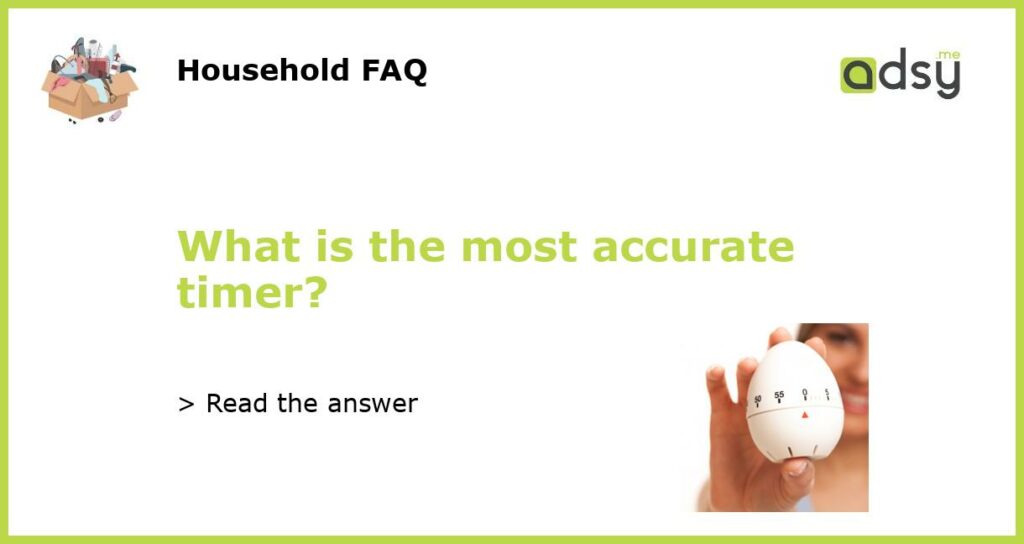Why Accuracy Matters When Choosing a Timer
When it comes to timers, accuracy is crucial. Whether you are an athlete trying to measure your performance, a chef relying on precise cooking times, or someone who simply wants to time an activity, having a reliable and accurate timer is essential. But with so many options available on the market, it can be overwhelming to determine which timer is the most accurate. In this article, we will explore the different types of timers and technologies used to measure time, and help you find the most accurate timer for your needs.
Atomic Clocks: The Gold Standard
When it comes to timekeeping, atomic clocks are the most accurate timers available. These clocks rely on the vibrations of atoms to determine time, which is incredibly precise. The International System of Units defines one second as the time it takes for a specific number of oscillations of a cesium atom. Atomic clocks can keep time accurate to within a few billionths of a second per day, making them the gold standard for measuring time.
The Accuracy of Quartz Timers
While atomic clocks offer unparalleled accuracy, they are not practical for everyday use. Instead, most consumer timers rely on quartz technology. These timers use a quartz crystal oscillator that vibrates at a specific frequency when an electric current is applied. Quartz timers are highly accurate and can keep time within a few seconds per month. However, they are not as precise as atomic clocks.
GPS Timers for Accurate Timekeeping
Another option for accurate timekeeping is GPS timers. These timers use signals from the Global Positioning System to determine time. GPS satellites have atomic clocks on board, and by receiving signals from multiple satellites, a GPS timer can accurately determine the time. GPS timers are generally more accurate than quartz timers and can keep time within a few billionths of a second per day. They are often used in applications where precise time synchronization is essential, such as scientific experiments or network timekeeping.
Choosing the Most Accurate Timer for Your Needs
When choosing a timer, it’s important to consider your specific needs and budget. If you require the highest level of accuracy, an atomic clock or GPS timer may be the best choice. However, these timers can be more expensive and may not be necessary for everyday use. For most consumer applications, a quartz timer will provide sufficient accuracy. Consider the potential margin of error and how critical precise timing is for your activity before making a decision.






